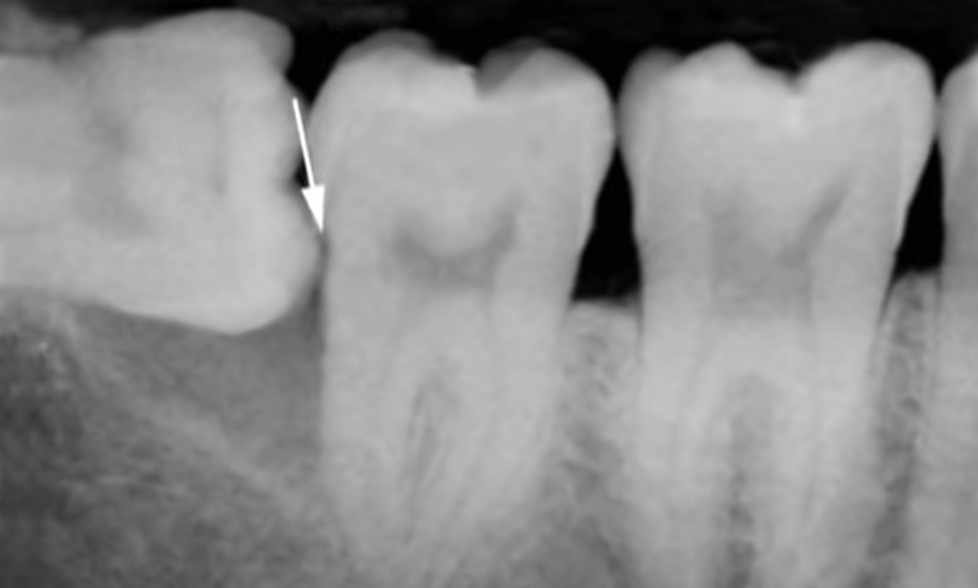
Common Complications of Impacted Wisdom Teeth
Over time, humans have less and less need for wisdom teeth. We can bite and chew our food without those extra back teeth, which often get in the way and may even become painful.
Wisdom teeth are the third set of molars that grow in people between the ages of 17 and 21 at the back of the mouth. Most already possess a full mouth of adult teeth by that time. This causes many people’s wisdom teeth to grow in an impacted environment, meaning one that does not have space for them to grow correctly.
It is best to talk with a dental professional to consider options before committing to surgery. Knowledge is power in situations like these. Dentists have the ability and expertise to give patients the resources they need to make an informed choice.
That said, try to catch and report a potentially impacted wisdom tooth early. As wisdom teeth grow and develop, the risk to one’s oral health grows. There’s a window where extraction is potentially easier than if one waits.
Common Complications of Impacted Wisdom Teeth
- Infection
One of the most common side effects of impacted wisdom teeth is infection leading to pain and swelling. These teeth are difficult to reach with a toothbrush or dental floss, making them impossible to keep clean. Infection can cause many other problems, and wisdom teeth likely to cause it should be removed.
- Gum disease
One of the secondary effects of infection is gum disease. Pericoronitis is the specific name for an infection in the gum tissue around the wisdom teeth. Gum disease can cause all kinds of complications that can spread throughout the body, so avoiding this is always better in the long run.
- Tooth decay
If infection occurs in the wisdom teeth and is allowed to continue, the wisdom teeth can begin to decay. This is an even more complicated issue to treat, so it’s best to catch the problem before it gets to this point.
- Damage to surrounding teeth
Impacted wisdom teeth can push against your nearby teeth, causing them to move out of alignment or even to become damaged themselves. If the wisdom teeth experience infection or decay, the teeth around them can also be easily affected.
- Ulcers
Impacted wisdom teeth that grow in incorrect directions can rub against the cheek, causing discomfort and even ulcers to form. While these ulcers will usually go away with time, they can be quite painful and may continue to occur if the tooth isn’t removed.
- Cysts
One of the scariest possible complications of an impacted wisdom tooth is if a cyst forms inside the sac within the jawbone where the wisdom tooth grows. If this happens, the cyst can create a tumor that (while usually benign) can cause the need to remove tissue or bone from the jaw.
The Importance of Wisdom Tooth Care
Not everyone needs to have a wisdom tooth extraction, but it is an important consideration. If one or more wisdom teeth become impacted, health issues maybe not be too far behind. These issues range from pain to infection and decay.
Some people don’t need extraction. Those with larger mouths may have space for the teeth to grow without issue. They might emerge perfectly straight and (if taken care of well) healthy. It’s always important to brush and floss regularly.
Don’t wait on this; talk with a dental professional about steps in wisdom tooth care early in the process. Choosing to endure the pain will only exacerbate the problem and lead to further complications that could strain both your body and your wallet.
